Terror From The Trolls (II): The Ethnic Divide, Revenge Killings Behind Nigeria’s Christmas Massacre
When violence broke out in the Bokkos area of Plateau state, foreign and local disinformation mercenaries claimed government-backed terrorists were on a mission to wipe out the Christian population in Nigeria during the last Christmas season. HumAngle digs deeper to discover the true causes of the bloodbath.
Ndun village is a junkyard of ruins.
A church was razed down, and a mosque was destroyed. A hospital was set on fire as bedridden patients scampered for safety with drips plugged into their skins. A primary school is now devoid of roof, teachers, and pupils after midnight assailants torched it. Homes were wrecked. Friends and families were torn apart. The glory of a once-thriving village is lost to the plague turning a fragile Plateau state into a killing ground in North-central Nigeria.
The native Ron people in this village are returning to pick up the ruins and rebuild their homes. But the Fulani settlement remains a ghost of itself; it has fallen silent, save for the buzz of flies, chirps of birds, and the adamance of a man, Mu’azu Muhammad, who would rather die than leave the village for anyone. Mu’azu admitted to being one of the arm-carrying fighters “defending [his] people” against the native warriors.
Ndun is the only place Mu’azu knows as home. The violence that broke out during last year’s Christmas season has uprooted his kinsmen, who now seek refuge in neighbouring communities and states like Bauchi and Nasarawa. Mu’azu still mourns one of his relatives, the chief Imam of Ndun, who was murdered gruesomely at the time the Fulani warriors had sheathed their swords, heeding the advice of their elders.
“How does war end that way?” he pondered. “We were told to stop fighting, we did, and the next thing we would hear was the murder of our Chief Imam.”
The Fulani and the natives had lived peacefully in Ndun until the Kambar Pelli massacre happened. The gruesome murder of a family in the Bokkos local government area by the Fulanis escalated into a full-blown war, and because of the timing of the horror, many tagged it the “Christmas massacre.” This gave religious colouration to the crisis on the internet, which would later have some offline effects.
HumAngle interviewed about a dozen natives found in Ndun to document the true cause of the tragic events. They claimed they had no hands in the mass displacement of the Fulani settlement and the murders that occurred there.
The Kambar Pelli massacre, as HumAngle would find, stemmed from the neighbouring Mangu local government area, where the indigenous Mwaghavul people were locking horns with the Fulanis. The war was intense, with hundreds of casualties on both sides. A spillover in the Bokkos area was even worse, catching the attention of the international communities — albeit with some distorted narratives.
Despite dozens of interventions by government and non-governmental organisations, questions keep begging for answers on the root causes of these recent endemic killings in Plateau state. Who and what are the anchors of the crisis? What is the big misery behind the killings, and why have authorities failed to put an end to it?
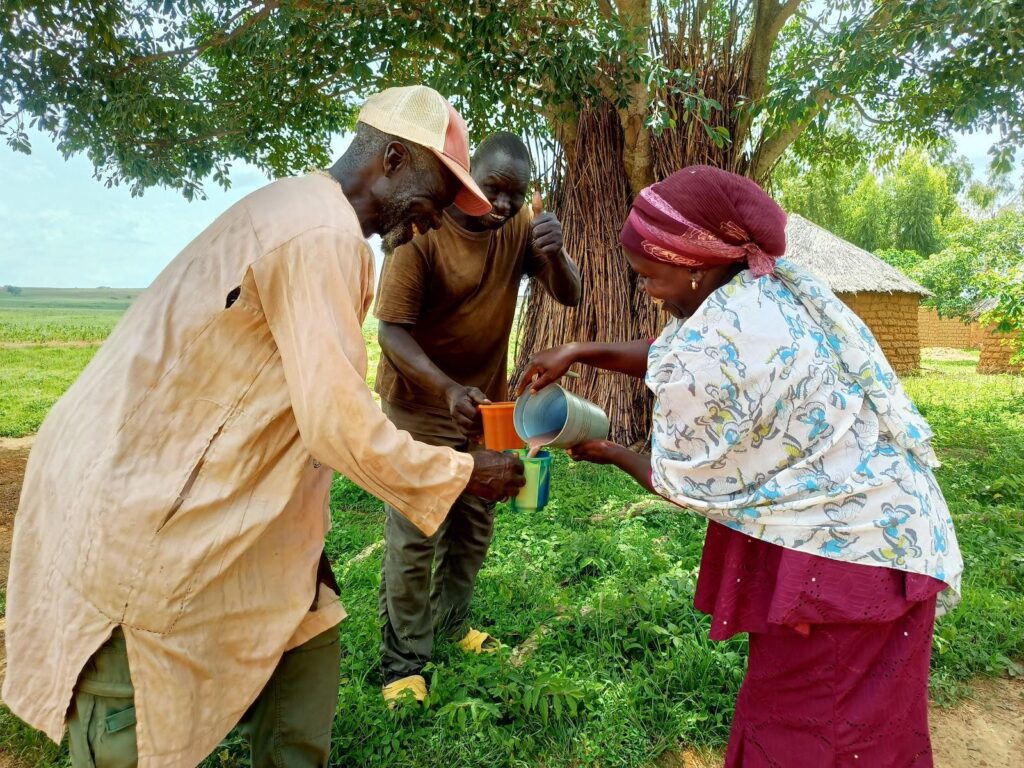
Peace and pieces
The land is green in Mangu, and nearly every native is a farmer. Although their Fulani counterparts are mostly pastoralists, they dwelled on the soil with relative tranquillity until a dispute over a piece of land breached the peace, turning the town into a vast execution field. Life was good in Mangu town; maize and Irish potato farming were thriving. On the side of the Fulani settlers — who said their forefathers had lived in this area for over 100 years — cattle rearing flourished.
Every other thing could be cheap, but having a vast land was quite precious in Mangu, villagers told HumAngle. Unlike many other places, they explained that lands are not sold to strangers. Mangu, a town in the heart of Plateau state, is predominantly home to the Mwaghavul people, while the Fulanis in this place are described as settlers. By “strangers,” dozens of townspeople who spoke to HumAngle said they were referring to the Fulanis who had lived with them for decades before conflicts flawed their relationship.
Whenever a cattle herd invaded a farmer’s land before now, the Fulani herders would beg and “we would forgive them,” they said. Random cases of theft, rural banditry and killings would later cause distrust and hostility among the natives and the Fulanis. The crisis that escalated into blood spilling started as a dispute over a piece of land in Murish, a community in Mangu.
The native Kyang family claims ownership of a farming expanse in Yidel, a hamlet in Murish. Suddenly, sometime in early 2023, someone began to erect a building. The person claimed he had been told by one Sarkin Yamma, also known as Ori, that the land belonged to the Fulani people in the area. Arguments ensued, and later, the Ori-led Fulani family issued a letter to the Kyang family to vacate the land because “it belongs to our forefathers.”
Both parties could not provide any document that showed they owned the disputed land.
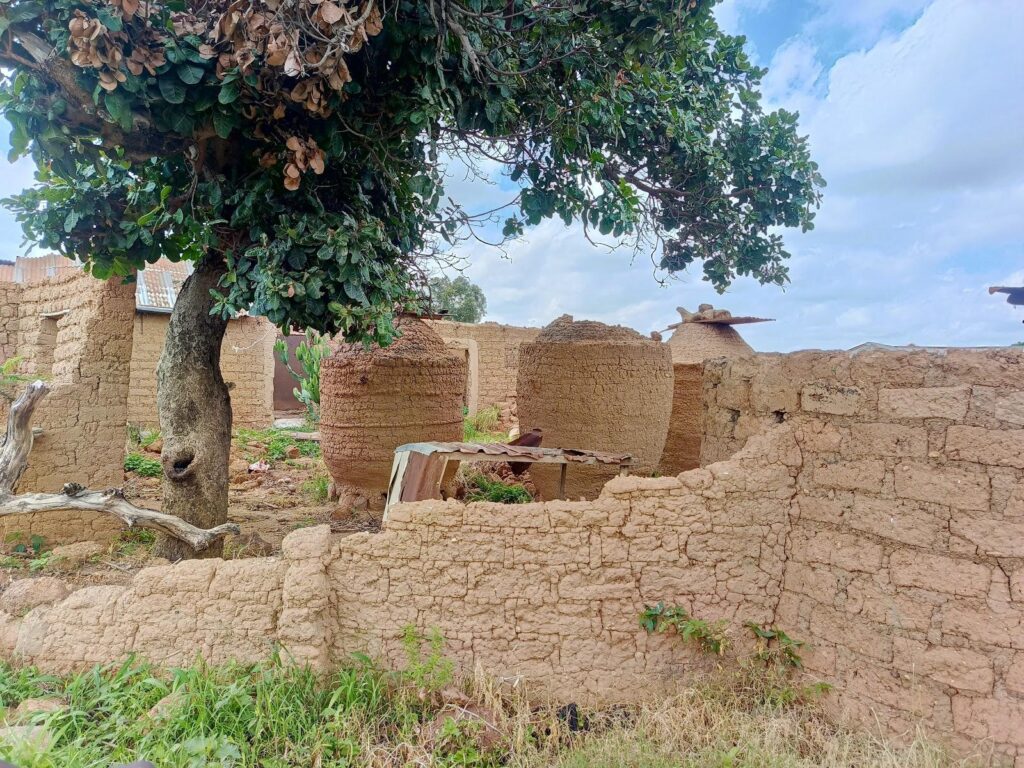
Curiously, another family of the Mwaghavul extraction showed up to claim they also owned the land. They had taken the matter to the police for settlement when Zakariah Hosiea, chief of the neighbouring Dumnai village, intervened, urging all parties not to drag the police into the matter. They all listened to him, only to realise he had a special interest in the matter, subtly taking a side.
“We cautioned him to mind his business because the place of dispute is outside his jurisdiction,” said Kyatwa Bitrus, a farmer in Jwak Maitumbi, who was actively involved in the matter. “The next thing we heard was that Zakariah told our village head the Fulani people had settled him and the other Mwaghavul family. He said they would contact us for our settlement, too, but we declined.”
Then, Isuwa Fankat, the local monarch of Murish, intervened, asking all parties to gather at his palace on April 15, 2023, before things would turn sour. But something terrible happened before the meeting date: A Fulani man hacked a Mwaghavul man to death during an altercation near the disputed land in Yidel. The victim of the murder, Aaron Gimba, bled in pain till he died, a witness who reported the matter to the monarch told HumAngle. The alleged killer was the son of Ori, the head of the Fulani people in the neighbouring Wolbi village.
The secretary to Ori went to Isuwa’s palace to report that one of his kin had killed a Mwaghavul man. The situation then went berserk as dozens of Mwaghavul men trooped into Ori’s residence to air their grievances. “After the incident, we saw Aaron’s lifeless body by ourselves; then we decided to go and see the Fulani head (Ori) to hand his son [the alleged murderer] over to authorities,” Isuwa recalled. “When we approached him, he said he released the boy when he saw us trooping into his residence, and the boy ran away.”
Aggrieved, Isuwa and his men picked up Aaron’s corpse, unaware of what would happen next. Tension built up quickly following Ori’s limp response to his son’s murder allegation. On their way home, some Mwaghavul mob took the law into their own hands. They found a Fulani man working on a farm in the area, and, with a gruesome resolve, they stoned him. The unarmed Fulani man made a loud screech before life forcefully left his body, witnesses said.
Immediately, Isuwa mobilised his people to report the issue to the police and peace-keeping soldiers in the area. The mediating security agents preached peace, especially now that two persons from both sides had died. “I met them, urging everyone to unite for reconciliation so everything could stop. But Ori kept calling people, and in the evening, everywhere was full,” he continued.

Mayhem in May
No one ever thought the clash would transcend beyond communal rioting. For a few days, the Mwaghavul natives said they observed armed, menacing men gathering in the Fulani settlement in Murish, but security agents wouldn’t let them strike. Two weeks later, Kubat, a neighbouring Mwaghavul community, came under heavy attack by vengeful Fulani attackers who had been contained in Murish.
About 13 persons lost their lives in the attack, while dozens of men and women lost their homes and properties. Although several media organisations claimed the attack was orchestrated by rural terrorists, also known as bandits, community chiefs and witnesses told HumAngle the assailants were local Fulani warriors invited to cause mayhem.
Vengeful Mwaghavul warriors took the battle to the doorstep of the Fulanis living in Murish, displacing them all after maiming and destroying their properties. A few weeks later, from May 15 to 16, 2023, a massive bloodbath concurrently occurred across Mangu communities on both sides, invoking a trove of tears and terror. The communal clashes detonated a raging war like a time bomb, costing over 80 people their lives.
The official figure was 87, but villagers we interviewed in many Mangu communities insisted that the casualties were more than 100. Attacks and counter-attacks happened in this axis nearly every month, degenerating into a deadly ethnic divide and spiralling across communities in Bokkos and Barkin Ladi. Houses, marketplaces, churches and mosques were targeted for arson on both sides, prompting a massive displacement crisis.
In July last year, over 80,000 displaced people pleaded with authorities to restore peace in Mangu so they could return home. Some parents also cried to the government to consider the vulnerability of thousands of children who had been forced out of school.
“We are tired of being here. We appreciate the security coming, but it would be best if the government deployed most of the security to the villages so we can get back,” said Mary Ishaya, a displaced woman from the Mangu district. “But we are left here, with our children, no food, no medicine, and the children are not going to school.”
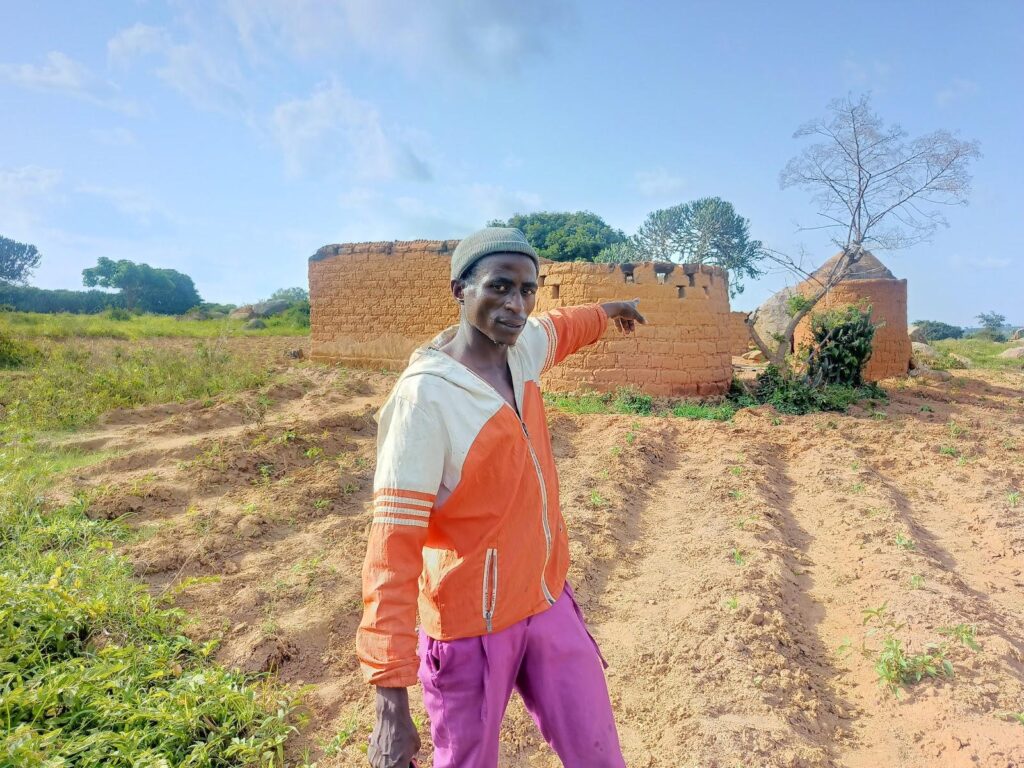
The victim cards
On May 16, 2024, friends and families of victims murdered during the heat of the conflict gathered for a one-year remembrance in the Manghul area of Mangu town, where over 30 people were buried in a mass grave. The families vented during interviews with HumAngle that the Fulanis have a damning resolve to “wipe off all the Mwaghavuls in Mangu town”.
Paul Udoji, a native whose two relatives were among those buried in the mass grave, claimed the Fulani warriors were backed by the government to “kill us house to house” because we didn’t vote for them. Dozens of natives in the town re-echoed this narrative.
“We noticed that the government is supporting the Fulanis to fight us,” Paul claimed. “We also noticed that some Fulanis are not ordinary people like us; they are trained because if you look at how they operate, they are not just ordinary people. They launched the attack to wipe us all with no one left.”
Interestingly, the Fulanis made similar allegations, claiming security forces were often on the side of the natives. However, HumAngle’s on-site reporting shows that both warring parties can be categorically called victims and villains — depending on who is telling the story. Many Fulani victims we spoke to accused the mainstream media of portraying them as villains and underreporting their sides of the story.
We monitored dozens of news reports of killings in Mangu between April 2023 and April 2024, and we observed the tagging of Fulani attackers as “terrorists” or “bandits” in many of those reports. Only a few stories referred to them as “herders”. Asked if they knew how they were being described in many media reports, many of the Fulani victims nodded in affirmation, stressing that such stories enraged them every time they listened to them on the radio or read via newspapers.
Shagari Madaki, one of the Fulani men deep-rooted in the communal war, believes there would be no ideal reconciliation as long as they were still being labelled in this manner. He also accused the governor of the state, Caleb Mutfwang, of calling them terrorists in some of his press releases. “Does that mean we are terrorists?” he asked. “You see, how can there be reconciliation here?”

The casualties
Like the natives, the Fulani people counted their losses, giving accounts of how their homes were raided and razed by the Mwaghavul warriors. They accused the natives of cattle rustling and indiscriminate killing of their kinsmen. They insisted that security agents, especially the Nigerian army officers deployed to the area, were aiding attacks orchestrated against them by the sons of the soil.
Shagari, for instance, noted how the native assailants arrived at his village as early as 5 a.m. to set dozens of houses ablaze on May 16, 2023. “And these attacks happened as if security forces were told to leave so we would be wiped out,” he complained. “There was a time they called for reconciliation. On the day of reconciliation, a cow was stolen and a Fulani boy – my aunt’s son – was abducted. Till today, we don’t know the whereabouts of the boy and the cow.”
During the mass displacements in May, August and September 2023, the Fulani people — including women and children who might know nothing about how the war started — suffered losses of souls, properties and loved ones.
Isah Usman, another Fulani man, said sometimes the natives falsely accuse them of invading their farm fields, taking laws into their hands. He stressed that during the heat of the crisis in Mangu, the Mwaghavul warriors went wild, burning the houses of the Fulani people, including those living in Bokkos. He, however, admitted that whenever the natives attacked them, they launched counterattacks.
“They used to stop [Fulani] people on the road and kill them. When they killed one of us, we killed their people in turn,” Isah asserted. “The security forces allowed them to burn our houses. And when our children and youth see soldiers they have to run away. After we left, these people went ahead to burn houses and places. That’s what is happening. You see here, the security men didn’t stand for justice here. If they are willing to stand for justice, they will go there and stop it.”
However, the Mwaghavul people also suffered heavy casualties, losing lives and properties to the tit-for-tat conflict. Several communities occupied by the indigenous people were burnt to dust, while many men, women and children paid with their lives during attacks orchestrated by the Fulanis. The violence occurred every month since it started in April 2023 but stopped abruptly in October, before the Kambar Pelli massacre happened again in December, stirring up a new wave of armed violence.
Before the Christmas carnage, hundreds of indigenous people had been killed during the conflict. According to the Mwaghavul Development Association (MDA), around 661 native people were killed — between April and September 2023 — across 98 towns and villages, with over 95,000 persons reportedly displaced. Although HumAngle can not independently verify the figure, representatives of the association said they gathered the data from all affected natives in Mangu. They added that the Fulani assailants destroyed around 7,000 houses while 158 churches were razed down.
While no official data was made available to HumAngle by the Fulanis in Mangu, Muhammad-Nuhu Abdullahi, the Chairman of the Miyetti Allah Cattle Breeders Association of Nigeria (MACBAN), said in a statement that hundreds of Fulanis were equally killed. He accused the Mwaghavul people of hiring tribal mercenaries to rustle more than 25,000 of their cattle in different attacks, especially during the May 2023 massacre. He also said over 200 Fulani people were missing at the time, and claimed the natives killed their innocent teenagers indiscriminately.
We contacted Sarki Yanma, the Fulani leader whose son allegedly murdered Aaron to get his side of the story, but his line was not reachable all the times we tried it in July and early August. We also tried meeting him physically during our trip to Mangu in June, but his kinsmen told HumAngle he was unavailable.
Ishaku Takwa, the spokesman of Operation Safe Haven, a military formation fighting insecurity in Plateau, did not answer his calls when HumAngle contacted him three times in August. He has not responded to our query asking him to respond to allegations against the security formation by the warring groups.
Following a resurgence of attacks in Bokko and Mangu earlier this year, however, the Operation Safe Haven, led by Maj.-Gen. Abdusalam Abubakar met with stakeholders from the two axes to put an end to the seemingly endless killings.
“We are urging you to support the government and the security agencies to tackle this monster headlong. We need lasting peace on the Plateau,” he said.
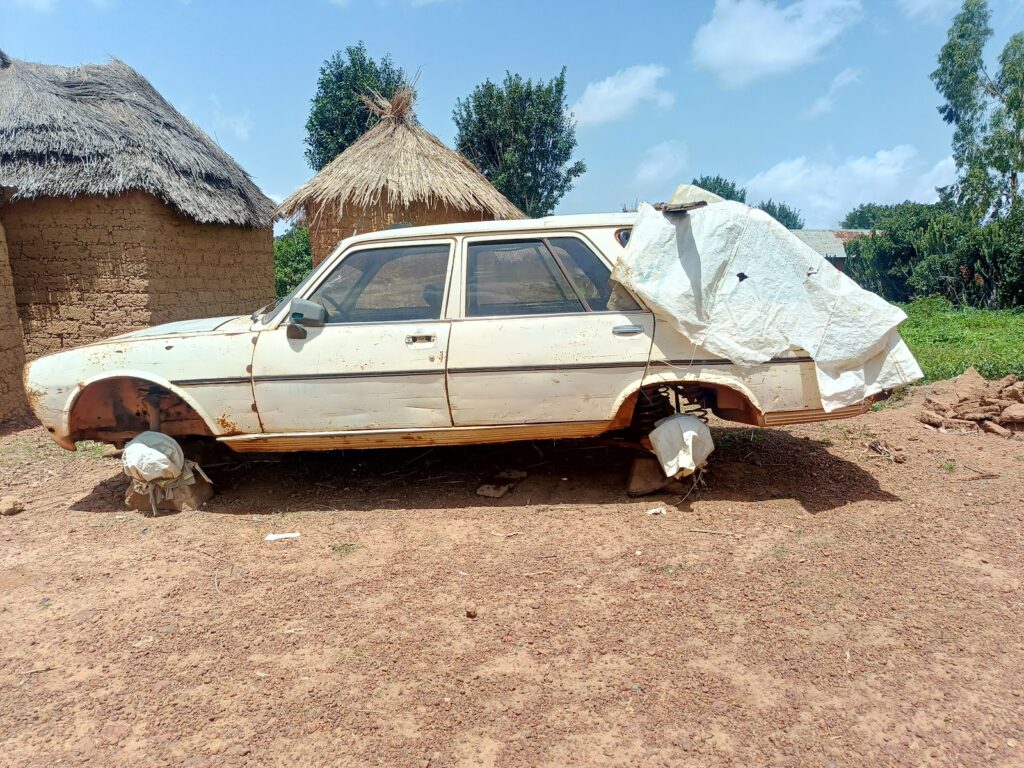
Vested interests
After painstakingly interviewing multiple sources on both sides across three local government areas, HumAngle found that as government and non-government organisations move to resolve the endemic killings, other factors keep fueling the crisis, making a peaceful resolution a hard nut to crack. While a piece of land in Murish had sparked the recent inter-ethnic violence, other cases of land tussles sprouted up in Mangu between the Fulanis and the natives, worsening the situation.
Beyond the religious colouration, the crisis is mostly caused by the thirst for land resources, with warring parties defending their interests in all folds. It is also about land ownership. While the native people are jealously claiming sole ownership of the expanse of lands in Mangu, the Fulanis — in most cases — believe they have stayed long enough in the axis to own land properties, including farming fields. In separate interviews, however, both parties believe external forces might have taken advantage of the feud between them to fuel an ethnoreligious war which has now caused massive deaths and displacements in the state.
In Jwak Maitunbi, a community neighbouring Murish in Mangu, a local chief is tussling over another piece of land with some Fulani settlers. The community chief, who asked not to be named to avoid being attacked, said he has had his fair share of the general feud over land resources in the area. He had possessed the expanse of land for decades, cultivating Irish potatoes and maize on it, but some neighbouring Fulani people suddenly began to build bricks on the same land and claim ownership of it.
When he challenged them, the chief said the Fulani counterparts dragged him to a nearby police station, where they resolved to share the piece of land equally, allowing him to continue farming while also letting the Fulani people build their houses in peace. He agreed and later brought a tractor to demarcate his land portion and cultivate crops accordingly.
“But they still invaded my land with their construction work, eating deep into my demarcated area,” the man said. “The next thing I saw was a court summon on the land issue again. When the hearing time came, they refused to show up in court. Still, I allowed them to continue building, even though they have trespassed on my land.”
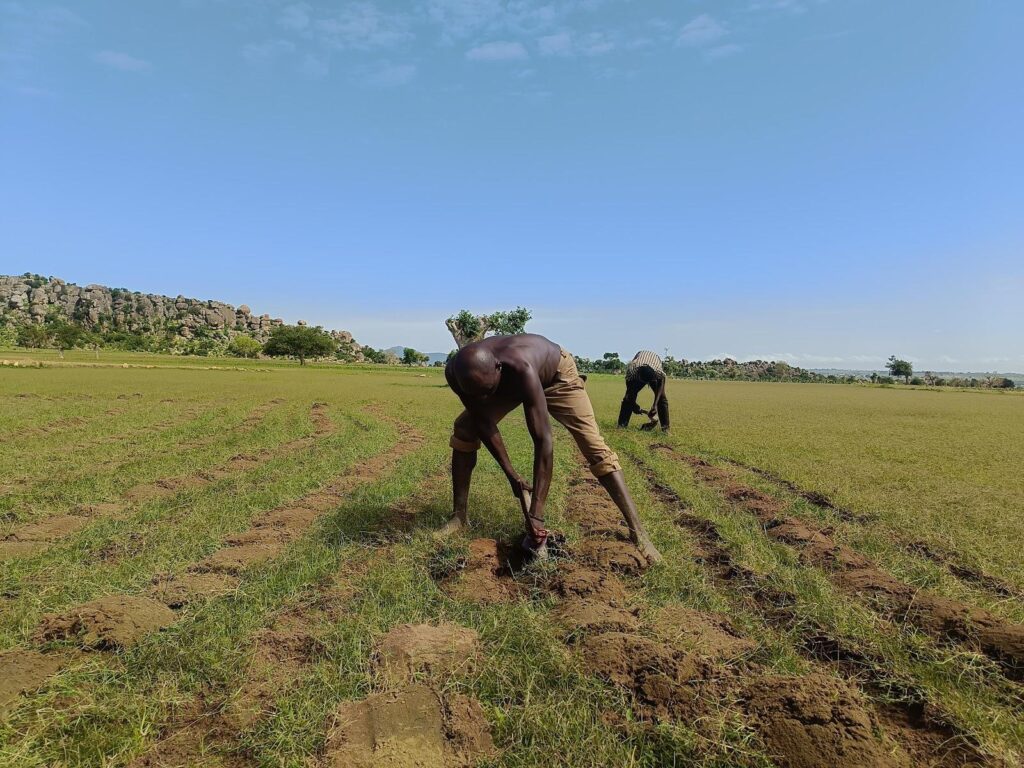
They had hardly resolved this issue in court when the land tussle in Murish became violent, with both parties targeting one another for murder, arson and displacement. The local chief who had been at peace with his Fulani neighbour in Jwak Maitumbi said he was enraged after witnessing the destruction caused by the Fulanis in Murish. He closed his peaceful approach with his neighbours and drew the battle line.
Dozens of unresolved land tussles such as this inflamed the hostility between both parties. Many Mwaghavul-dominated clans in Mangu have different land disputes with their Fulani neighbours, flaming up violence and bloodshed. Meanwhile, the Fulanis in Mangu have a different storyline; they believe the system is shortchanging and marginalising them.
They said they were “still being treated like strangers” despite living here for decades. Usman Jaginde, a local Fulani man from the Chisu village in Mangu, said the government’s abandonment of their rights ignited the rage of discord and disharmony, a claim echoed by other Fulani people we interviewed. “Seriously, we were deceived and our rights were trampled upon in this town,” Usman said. “If the government brings something 100 per cent, only 15 would be given to us because we’re the minority. Yet we suffer the most; honestly, the support brought here is not reaching anywhere.”
Violence and vengeance
Mangu and Bokkos local government areas are geographically neighbours; the horror that struck the former could easily spread to the latter. One can trek from Kombum, a village near Murish in Mangu to Kambar Pelli, a hamlet in Bokkos, where the family massacre that sparked the Christmas season conflict happened. When violence broke out in this area in December 2023, rumourmongers, especially foreign and local disinformation mercenaries, claimed government-backed terrorists were on a mission to wipe out the Christian population in Nigeria.
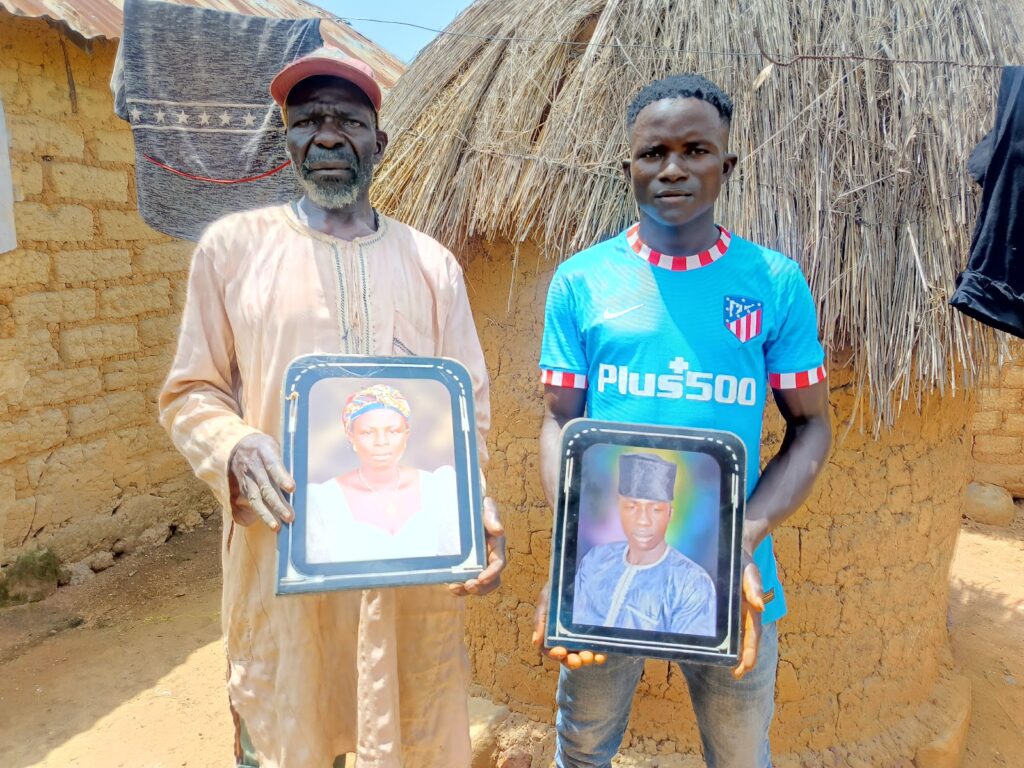
However, HumAngle’s investigation revealed the massacre that occurred in Bokkos which would later spread across towns and villages in Plateau, has direct connections with the Fulani versus Mwaghavul tussle over land resources in many Mangu communities. Panmun, a successful local farmer in Kambar Pelli, engrossed himself in one of the many violent disputes that caused the displacement of the Fulanis in Bidol, a community in the neighbouring Mangu area. Back with a vengeance, the Fulanis traced him to his community in Bokkos, wiping off his entire family.
HumAngle earlier reported how a wildfire of disinformation flamed up a bloody war following the Kambar Pelli massacre. A journey to Bidol revealed even more details on why Panmun and his entire family were murdered gruesomely on Christmas Eve. Namban, Panmu’s wife, hailed from Mangu; her parents had bestowed a piece of land to the couple some years ago when they married. The land yielded fast-growing crops after Panmun turned it into a farm field. But some Fulani herders destroyed the farm after grazing cattle on it.
After begging them to let the matter slide, Ruth Zakari, Panmu’s mother-in-law, asked him and his wife to forgive the Fulanis. The Fulanis were compelled to pay damages for the destruction they caused on the farm field, but they failed.
Panmun fell out with the Fulani people when he insisted they must pay for the damages, leading to a dispute. Already, the natives had grievances with their Fulani neighbours in the village; the latest dispute with Panmun, coupled with recurrent allegations of thefts and rural banditry propelled the initiation of a mass displacement of the Fulanis, adding to the existing feud in Mangu.
Everyone we spoke to in Bidol believes the Fulanis targeted Panmun’s family because of his involvement in the land disputes, confirming our claims by villagers in Kambar Pelli, where what turned out to be a Christmas Eve bloodbath happened.
“The killing of a man, his wife and children put so much pain in our hearts; when this carnage happened, I said wherever I see a Fulani man I will kill him,” mourned Zakari, Panmu’s father-in-law. “I can’t forget this; God will never forgive these people.”
Now, the Fulani settlement in Bidol is abandoned. Lives and properties were ruined while hundreds of cattle belonging to the Fulanis were rustled. Zakari added that killing Panmun’s entire family because of his involvement in the land dispute was unfair, insisting that sacking the Fulani people was a joint resolve of natives in Mangu.
“Even if we didn’t do it, others from different villages would team up to chase them away,” he told HumAngle. “If I knew the Fulani men that killed them, even if it took a thousand years, I would take revenge.”
This report was completed with the support of the Centre for Journalism Innovation and Development and the Open Society Foundations.
Summary not available.
Support Our Journalism
There are millions of ordinary people affected by conflict in Africa whose stories are missing in the mainstream media. HumAngle is determined to tell those challenging and under-reported stories, hoping that the people impacted by these conflicts will find the safety and security they deserve.
To ensure that we continue to provide public service coverage, we have a small favour to ask you. We want you to be part of our journalistic endeavour by contributing a token to us.
Your donation will further promote a robust, free, and independent media.
Donate HereStay Closer To The Stories That Matter





